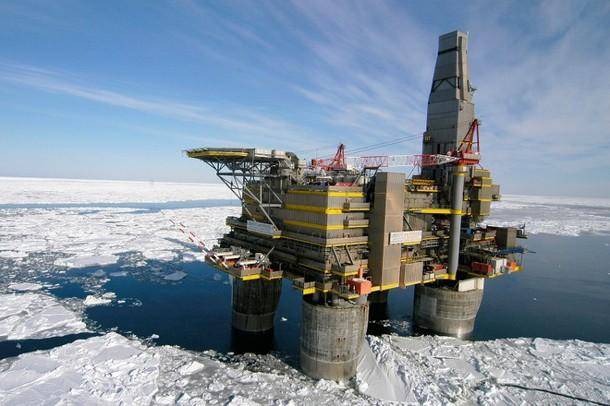
GAZPROM NEFT LOOK EAST

REUTERS. Gazprom Neft , the oil arm of Russia's Gazprom, has not been hurt by Western sanctions over Russia's annexation of Crimea but will move away from dollars in its contracts, and redirect oil flows to Asia, if needed.
The company is the first in Russia's oil sector to say it could potentially move away from dollar-based contracts in response to Western sanctions and marks the planning going on in Russian industry to anticipate possible further measures.
But CEO Alexander Dyukov said Western banks were unlikely to stop cooperating with Gazprom Neft and that Western oil majors did not want geopolitical tension to affect their partnerships.
He told reporters the company would step up contacts with Asian lenders and raise money in Russia if borrowing costs rose further in reaction to the sanctions, visa bans and asset freezes which the West imposed on allies of President Vladimir Putin.
"As for sanctions, they have not affected the company's business in any way," Dyukov told reporters at a regularly scheduled briefing in Russia's second city of St. Petersburg, where Gazprom Neft is based.
He suggested Western companies did not want broader sanctions imposed on Russia, but Gazprom Neft would reduce its reliance on the dollar if the West shuts its doors.
"Of course, I have had meetings, contacts with representatives of Western business circles ... In principle, they are not interested in escalation of tensions," Dyukov said.
Gazprom Neft is exploring for unconventional oil such as that held in shale deposits - a possible source of future oil output growth in Russia - in western Siberia with Royal Dutch Shell.
With the United States seeking to punish Putin for the annexation of Crimea and deter him from seeking control over any more Ukrainian territory, he said the company had broached the idea of dropping the dollar, traditionally the currency of choice for the global energy sector.
"No such task has been set (by the government)," he said. "But ... we have discussed with our buyers the possibility of switching contracts to euros and ... 95 percent said they are ready."
As part of measures to try to increase the economy's independence from international forces, Russia has speeded up the development of a domestic payments system and has urged companies to increase the share of rouble payments in contracts with foreign partners.
TURNING EASTWARDS
With the Kremlin keen to foster closer Asia ties, Rosneft , Russia's biggest oil producer, was the first state-owned company to take the cue. Its CEO, Igor Sechin, did an Asian tour last month to boost cooperation.
Russia plans to double its oil flows to Asia over the next 20 years to some 32 percent of total oil exports via the East Siberia-Pacific Ocean pipeline and its spur to China. Both routes need expansion to ship additional volumes.
But some analysts say Russian energy companies need partnerships with Western companies for help with the know-how and financing to extract unconventional or "hard to reach" oil and gas.
Rosneft said last week its cooperation with ExxonMobil on a planned liquefied natural gas plant in Russia's far east was not affected by the sanctions.
Dyukov said Gazprom Neft could turn eastward and redirect some of the 5 million tonnes of oil that it ships to Europe annually. "This amount can be quite easily redirected to eastern markets. The situation with oil products is the same," he said.
He said Western banks were unlikely to stop cooperation with Gazprom Neft, which regularly raises cash abroad. "But in any case we have paved a way to Asian lenders as well ... plus there is a domestic market," Dyukov aid.
He said Gazprom Neft, Russia's fourth-largest oil company by output, is ready to withstand a spike in borrowing costs to continue developing the Bazhenov unconventional oil formation in western Siberia.
Gazprom Neft also plans to start commercial oil production at its Badra field in Iraq in May and to ship the first cargo with oil from Prirazlomnoye, Russia's first offshore field in the Arctic, in the second half of April, he said.





